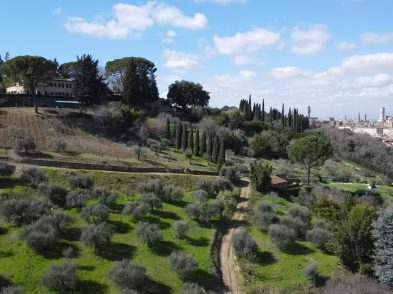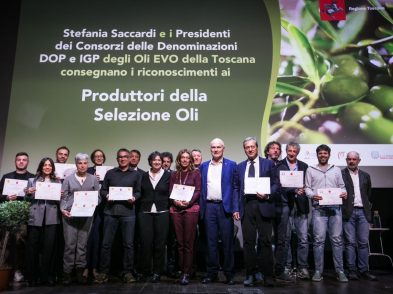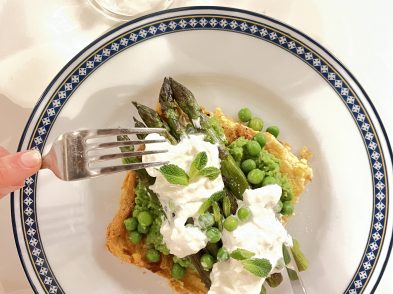These disturbingly hot autumnal days bring a dichotomy of scenes: Tuscans enjoying a last dip in the Tyrrhenian on a Saturday and picking olives on a Sunday. The wine scene appears oddly unaffected as vintners adjust to the new normal of climate change: deeper roots, early harvesting, resorting to different aspects and undeniably bigger bodied wines. Windows rolled down, the approach to Castello di Bossi is iconic.
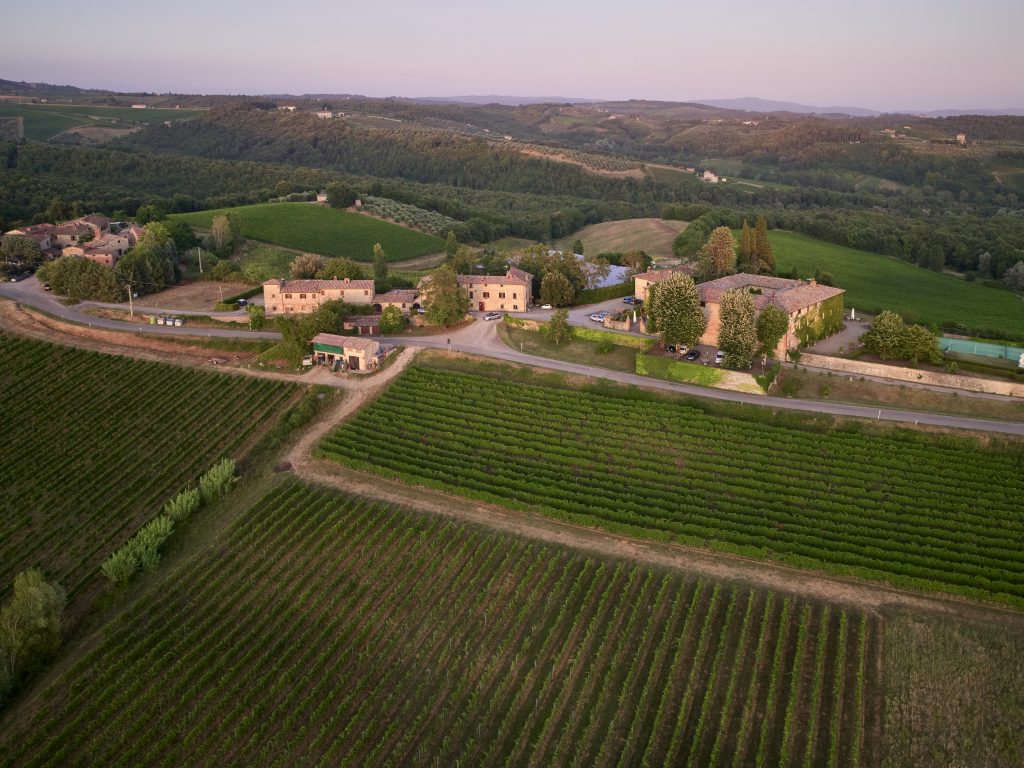
After winding through the wilds of the Chianti Classico countryside, the road elegantly descends into the sun-drenched valley with the russet vine-draped castle dominating the surroundings. Purchased in 1984 by former fashion entrepreneur Marco Bacci, today’s all-organic production focuses primarily on Sangiovese in the Castelnuovo Berardenga municipality, although Bacci Wines as a group now vaunts more than 900 hectares in Tuscany due to estates in Montalcino (Renieri) and the Maremma (Terre di Talamo).
An off-the-road drive through the sprawling Chianti Classico vineyards includes a look at the eight hectares installed with photovoltaic panels that power the tenuta’s needs and a glance at the truffle reserve (yes, travellers can enjoy a tuber treasure hunt by reservation). Hidden deep in the woodland is a caveau of sparkling Sangiovese, turned by hand, to produce white, full-bodied, high-acidity bubbles, while dusty bottles date back to the estate’s first vintage in 1961 in the eleventh-century fortification.
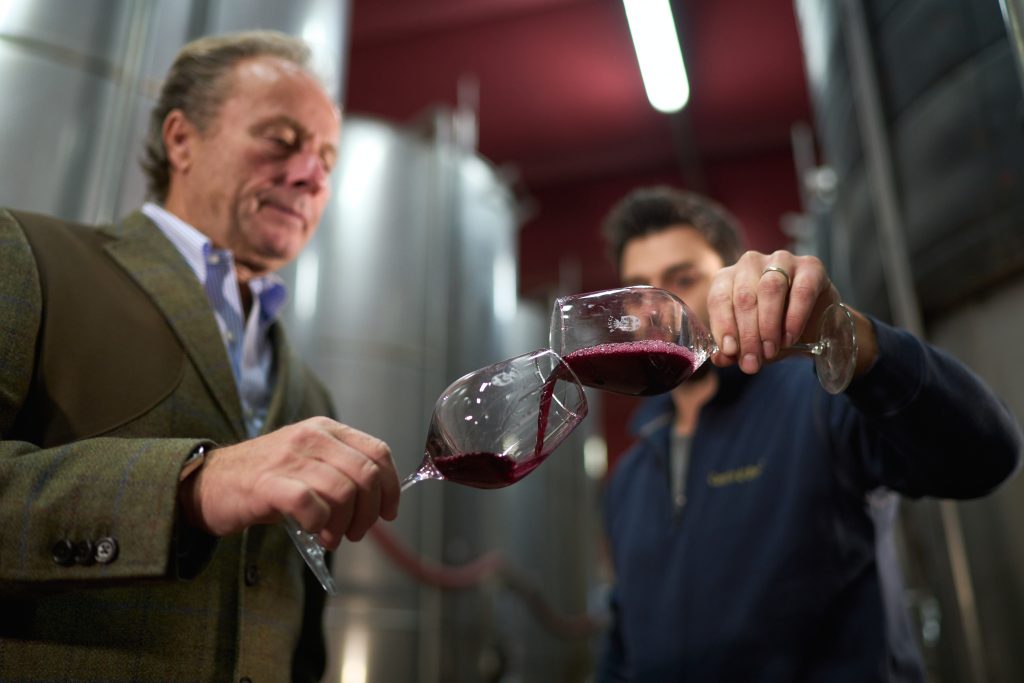
As I taste the 2021 Pinot Noir straight from the vat, young resident winemaker Stefano Marinari explains how the red row we saw earlier amid the Sangiovese maintains all the poise and romance of the international grape due to gentle ageing with half new and half used barrels. Up in the cozy tasting room, complete with billiard table, the oenologist presents an overview of Bacci Wines, from Riesling-esque Vermentino “Vento” 2021 to juicy Morellino di Scansano “Tempo” 2021 underscored by a vein of black olives and a graceful Rosso di Montalcino 2019 that hails from east of the hilltop town. Ferrous and farmyardy Castello di Bossi Chianti Classico 2019 returns us to our current location alongside the elevated Riserva 2018 grown from 40-year-old vines. On remarking about feeling the sense of place and the traditional stance of the wines, Marinari teases with a challenge: But have you ever tasted Syrah made in Montalcino? The answer’s no, at least until he coaxes open his classy modern chocolatey Regina di Renieri.
After dinner at Castelnuovo Berardenga’s delicious Enoteca Bengodi, tasting the perfection of Bacci Wines’ breezy Brunello with just bloody enough bistecca, I climb the steps up to the split-level dovecote at Bellavista, one of Castello di Bossi’s rustic and comfortable holiday apartments. Yes, it’s far too warm and never before has there been more cause for concern on the climate change front, but Chianti Classico is as welcoming as ever.



